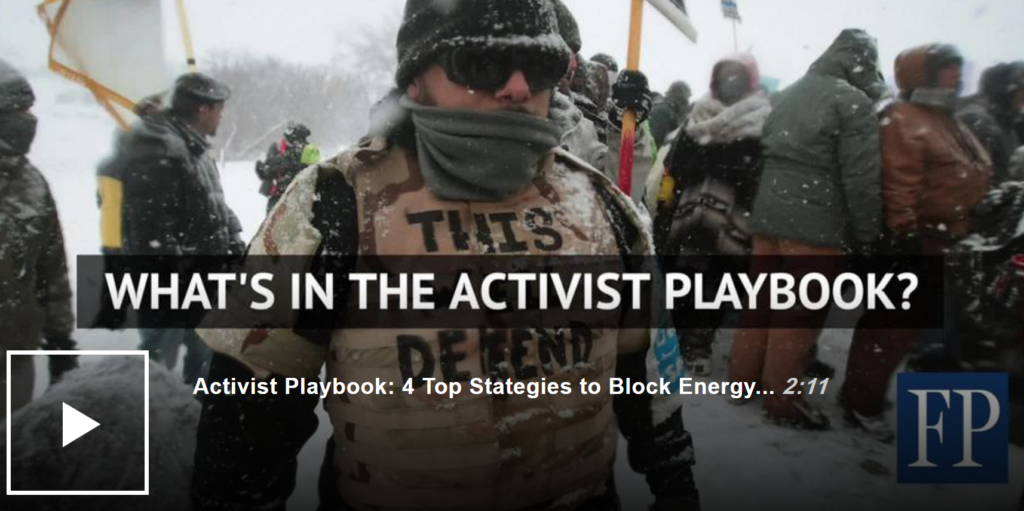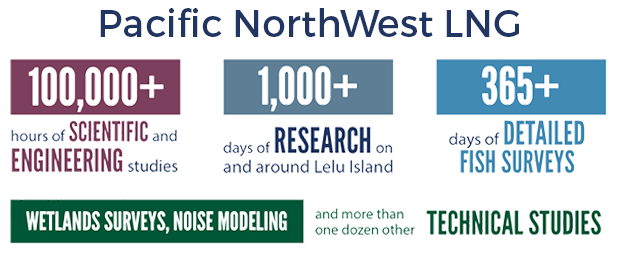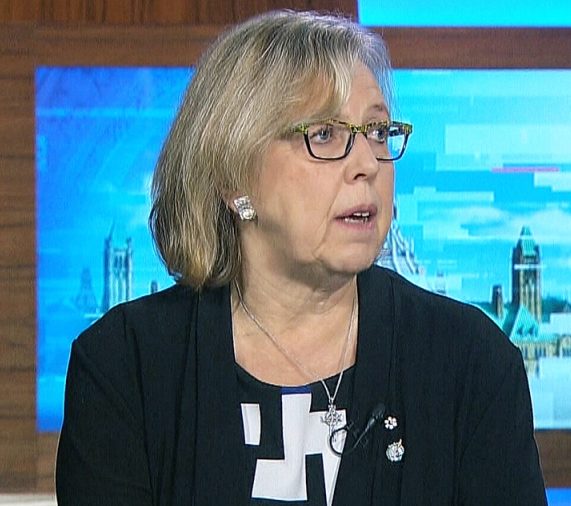
A recent investigation from the Financial Post sent reporters to communities across Canada where major projects had been stalled or cancelled by activist opposition. They uncovered 35 projects worth $129 billion dollars that were victim to activism, and of that, $40 billion were projects in BC. The “Activist Playbook” are tactics used by the anti-resource development movement to stall economic growth and drive away investment. With every project that the eco-activists block, our economy becomes vulnerable to instability in oil and gas prices, fewer investments that lead to tax revenue for important social services, as well as an increasing reliance on the US market.
Tactic 1: UNDERMINE CREDIBILITY
One tactic used by activists is to undermine the credibility of institutions that approve or review projects, such as the National Energy Board (NEB) or the Canadian Environmental Assessment Agency (CEAA). When major projects are recommended for approval by the NEB, a go-to tactic by activists is to undermine the credibility of the research involved with the decision. Activists seem quick to suggest that environmental reviews are a “sham” when the decision doesn’t go their way, but these lengthy fact-based reviews are worthy of our trust and confidence.
The NEB’s report for the Trans Mountain expansion heard concerns from 400 interveners, 35 indigenous groups, and 1,250 other groups or individuals. The report suggests that the project can be constructed and operated in a safe manner, and that it is in Canada’s public interest that the project proceed. Major project reviews are rigorous, science-based, highly responsive to public and Aboriginal input, and are more comprehensive than vocal minorities lead people to believe.
Pacific NorthWest LNG earned provincial and federal approval after a more than three-year long federal review. This review included more than 100,000 hours of scientific engineering studies, more than 1,000 days of research on or around Lelu Island, and more than 365 days of detailed fish surveys.
Yet despite a lengthy scientific and fact-based review, as well as more than 3,000 meetings with community members and First Nations, 14 open house sessions, and two local community offices, opponents of the project claim the results are inconclusive.

Tactic 2: DELAY, DELAY, DELAY
Another tactic used by protesters is to delay projects with legal challenges to the point that the project is cancelled or final investment decisions are postponed indefinitely. Through these drawn out court battles, activists seek to delay the project to the point where the window of opportunity closes or the market becomes volatile.
The SkeenaWild Conservation Trust say that Pacific NorthWest LNG will have negative impact on salmon in the area and is challenging the project in court, the fourth legal battle that Petronas – the project proponent – will face. It’s important to note that the CEAA review states that the project will “not likely to cause significant adverse environmental effects on marine fish and fish habitat.” Petronas has proposed their plan to halt dredging between April 15 and July 15 to avoid potential impact with peak juvenile salmon outmigration, which was a concern reviewed by the CEAA.
But it is not just oil and LNG projects that face opposition, as even renewable energy projects like Site C have been taken to court. Two groups challenged the project’s provincial permits in court, stating the province failed to properly consult with them. However, a judge ruled in favour of the province, stating that it was these two groups that made the consultation process difficult by refusing to engage within a reasonable timeframe.
Tactic 3: SET UP CAMP

Physically blocking a project from proceeding with construction is a classic tactic used by protesters throughout history. This method has made headlines two years ago at Burnaby Mountain where at least 150 protesters were arrested for civil disobedience against Kinder Morgan’s test drilling in preparation for the Trans Mountain expansion.
Green Party leader Elizabeth May has also said she would do everything in her power to stop the expansion and is willing to go to jail to stop this federally and provincially approved project. It is mind-boggling that an elected official went on record suggesting she would break the law to stop a project that has earned the right to proceed.
Another project that has earned federal approval, as well as provincial, is the $11 billion Pacific NorthWest LNG project in Prince Rupert. The site for the project – Lelu Island – has been occupied by protesters for most of 2016. By physically blocking off research crews from the island, activists stall research that must be done for the proponent to meet the 190 conditions attached to its approval. While the rest of BC’s resource development supporters wait for a final investment decision from Petronas, the vocal minorities continue to make investing in BC unfavourable with each passing day.
Even green energy projects like Site C are victim to physical blockades, as was the case in January last year when protesters were arrested for blocking vehicles from entering the work site. Activists had camped out in a remote area on the south side of the Peace River, which stalled site clearing for more than two months until a court order ended their land occupation.
Tactic 4: A CONTENTIOUS ISSUE
The final tactic used by activists is to make project approvals politically contentious to the point that party support for a project is withdrawn. The majority of British Columbians support getting to yes on major projects like pipelines; however, this support is drowned out by the vocal minority and the media coverage that activists receive. If these vocal protesters manage to convince politicians that their views represent the majority, you can bet the party’s platform will flip flop to appease as many people as possible.
The stigma attached to supporting a balance between economic development and the environment is staggering. Eco-activists seem to want an environment-first mentality across the province, despite the fact that 84% of BC residents support responsible resource development.
Even some First Nations leaders are hesitant to share their support for pipelines and economic development. Perry Bellegarde, Assembly of First Nations national chief, told CBC News that there’s a stigma that “somehow you’re not a First Nations person if you support a pipeline.”

Despite 2016 holding numerous victories for green-conscious voters, which included a national price on carbon, a 2030 deadline to phase out coal plants, an overhaul to the NEB, and a moratorium on tankers on the north coast, it didn’t seem good enough for activists. It took only a few hours for protesters to gather in downtown Vancouver after Prime Minister Trudeau’s Trans Mountain approval announcement. A Greenpeace campaigner criticised Prime Minister Trudeau for breaking climate commitments and says that war has been declared on BC.
The anti-development crowd will never be satisfied with conditions and regulations put in place to mitigate risks and safeguard the environment. No matter how many scientific studies or technical reviews are completed, the eco-activists may never understand that balancing the economy and environment go hand in hand. They seem unlikely to won over by the new federal legislation on carbon pricing, or the $1.5 billion Oceans Protection Plan, or the tanker moratorium on the north coast.
Environmental activists have the right to peacefully protest projects they disagree with and there are many ways to demonstrate without stopping legally permitted work. But what activists cannot do is take the laws into their own hands by blocking a project that has earned the right to proceed.
Join the fight to get projects to yes
Are you part of the large majority of British Columbians who support responsible development? Sign up for updates to major projects, and join our community that is helping get projects to Yes.
Visit www.icba.ca/growing-the-economy/ to learn more about responsible resource development and how you can help bring projects to yes.
